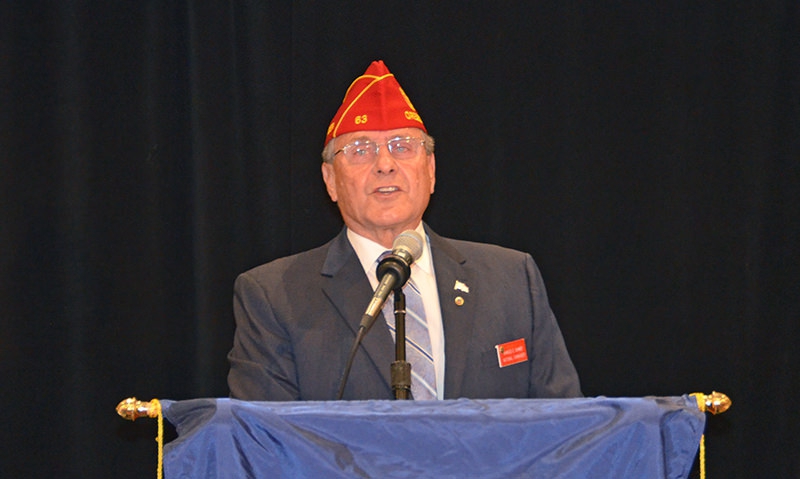
Legion membership driven by brand awareness, the why to join
As The American Legion advances upon its 100th anniversary in 2019, National Commander Charles E. Schmidt continues to stress that membership will remain poignant in leading the largest veterans service organization into its next century.
“We need your help if the only organization that we all love is going to remain relevant. Are we doing all that we can to say, ‘Join us!,’ to those eligible to do so?” Schmidt asked attendees of the Legion’s National Membership Workshop on July 28 in Indianapolis. “Membership will always be the lifeblood of The American Legion.”
The focus of the two-day workshop is membership growth. Attendees heard a story of how there’s not a town in this country too small for a post to thrive in.
White Bird, Idaho, has a population of 105 and more than 50 of those residents belong to the local American Legion Post 152. The post resurrected its charter with 10 members last June, and in less than a year’s time it has succeeded with membership because it was built on “veterans serving veterans and a devotion to mutual helpfulness, and they learned that camaraderie is a pretty powerful engine and it’s very contagious,” said National Adjutant Daniel S. Wheeler. The post members also built awareness of their return by becoming actively involved in the community of White Bird, which “made themselves visible, and they got everyone’s attention,” Wheeler added.
Post 152 Commander Walt Lindsey believes that the post can reach 1,000 members over the next few years. Wheeler said it’s “because they know who they are, they know what they do, and they understand why we need The American Legion.”
Brand awareness is key in leading membership growth and was a topic of discussion among the workshop attendees. One way to create brand awareness and increase membership is by getting outside of the post home and into the community. A great example of this is by visiting military installations. While membership recruiting isn’t allowed on military installations, Legion members can still support brand awareness by meeting face-to-face with servicemembers and their family members to make them aware of The American Legion and its support programs. This, however, can turn into new membership.
National Security Division Director Rhonda Powell said that during a recent visit to Ramstein Air Base in Germany with National Commander Schmidt and other national staff, 90 servicemembers joined The American Legion.
“I heard a Marine say that you spend 13 weeks in military training, but you have one week to transition back to civilian life. We pick up where the military leaves off,” Powell said.
The Legion’s “Access Granted” brochure explains how to request access to military installations, as well as providing information on the Legion’s available support programs – Temporary Financial Assistance, Family Support Network, education, employment, service officer support, and more.
Joe Story of Tomahawk, Wis., said the Wisconsin National Guard’s 951st Engineer Company knows of The American Legion because of the visits the 11th District Legion Family members pay to the men and women and their families before deployment and upon their return. He shared that during a deployment one of the wives called The American Legion for assistance in repairing her damaged roof, caused by a tree falling over during a storm. Within 72 hours her roof was fixed.
“That would have not had happened if The American Legion had not been working with the local Guard unit,” Story said. “That’s the importance of The American Legion with your National Guard and reserve units, and with your family readiness groups. If you’re not knocking on doors to let people know what we can do to help them, they won’t know who we are. It’s brand awareness.”
Schmidt left Membership Workshop attendees with a question. “I have asked Legionnaires to ‘Carry the Legacy Forward.’ But who is going to fill our shoes in order to do that?” he asked. To answer that, Wheeler said Legionnaires need to know why one should join The American Legion.
“Why should a veteran who is not a member want to be part of The American Legion. What is our why?” he asked. “The ‘Why?’ in Virginia may be different than the ‘Why?’ in Idaho. As the national commander says, who is going to fill our shoes? Just as important is who will tell them why they need to fill our shoes?”
